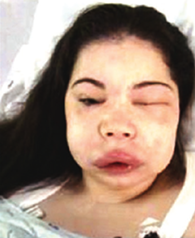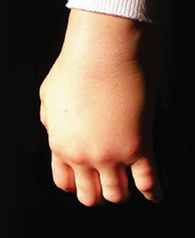
Before

After
Attacks involving the throat/airway are the most dangerous as they can close the airway and cause death by choking.
Death from throat/airway swelling in untreated patients with HAE can be as high as 30%.
Relating to the blood vessels.



Attacks involving the throat/airway are the most dangerous as they can close the airway and cause death by choking.
Death from throat/airway swelling in untreated patients with HAE can be as high as 30%.


Stomach/gastrointestinal attacks cause excruciating abdominal pain, nausea, vomiting, and diarrhea.


Swelling of the hands and feet is painful, disfiguring and disabling.
